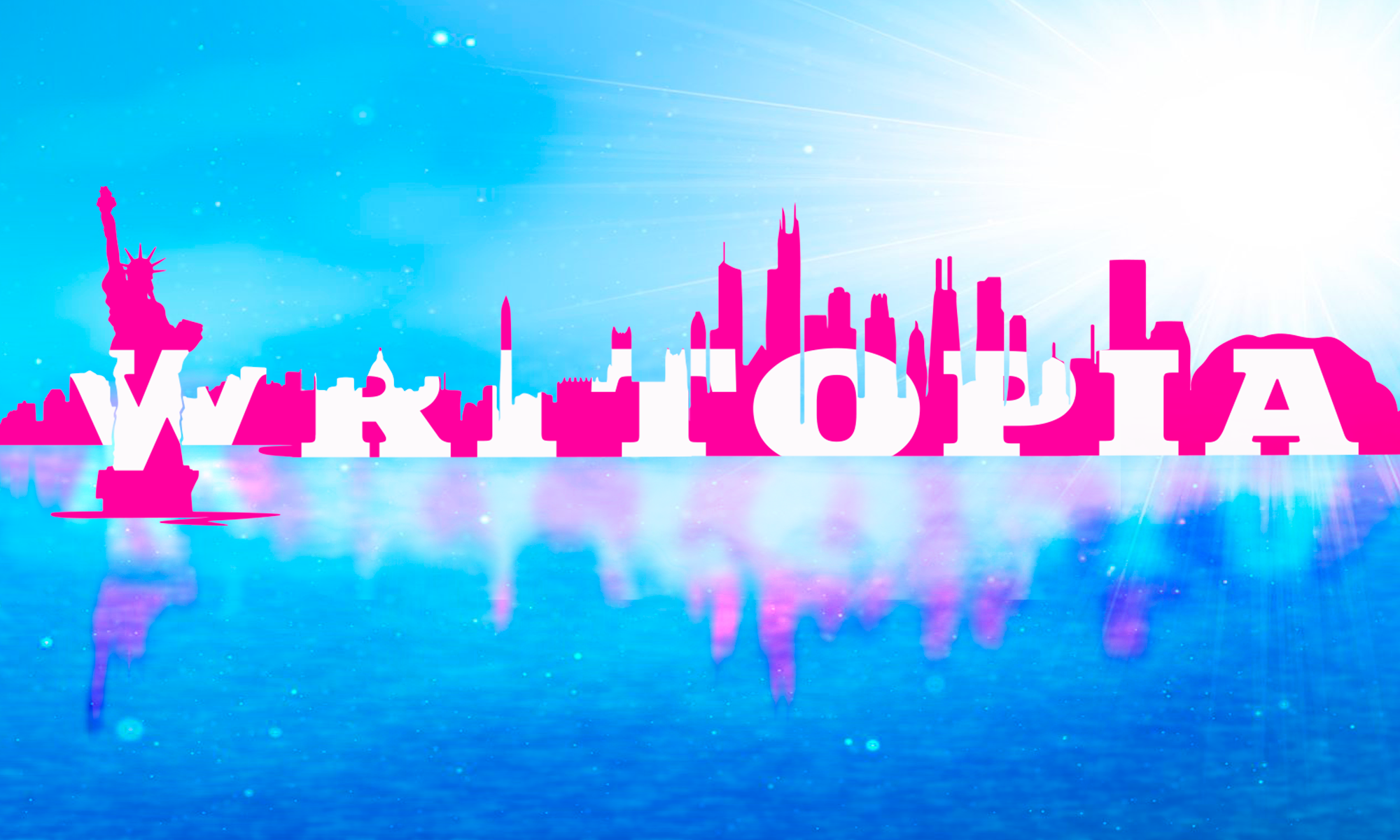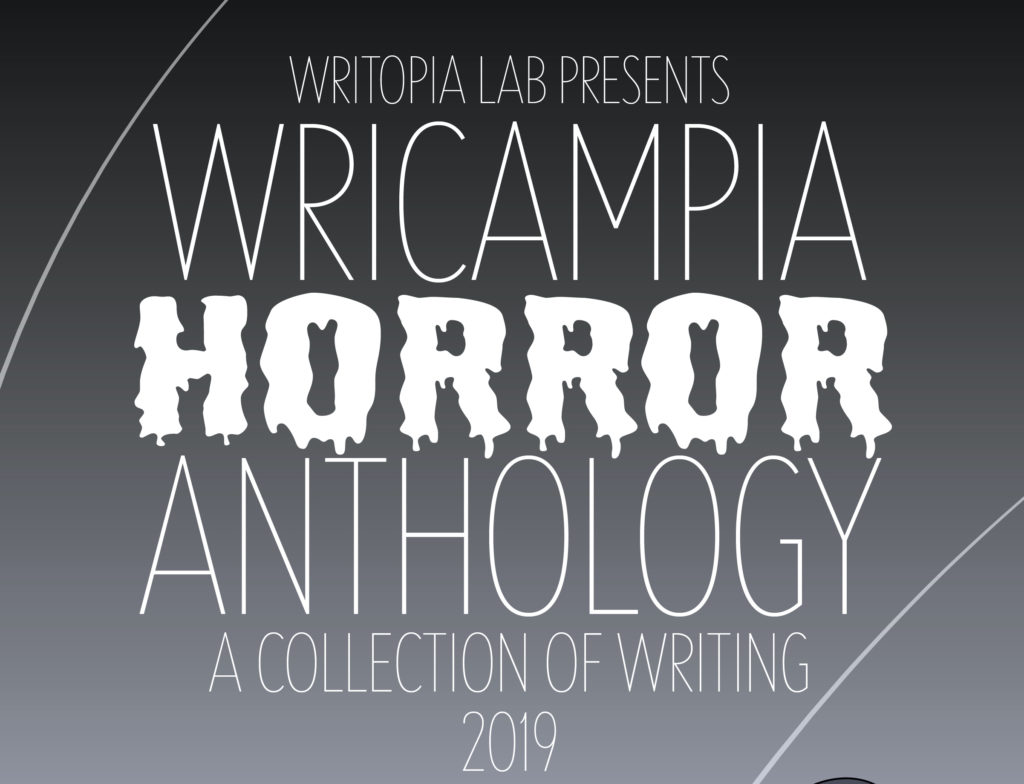By Matthew Jellison
We were losing literary bingo when the thought hit us.
We were surprised to be losing. After all, Malcolm and I have spent the better part of a decade working in literacy, and Yael about a decade and a half. We are (affectionately speaking) literary nerds. In the office we share, Yael and I often pick up books hanging out on one another’s desks because we’re always curious about what the other is reading; we go on about literature, film, and television. And Malcolm seems to have an endless well of facts about various curiosities at his disposal. Take the one train back from teaching with him at a partner school, for example, and he’ll tell you about the history of a particular subway stop along the way, which then turns into a history of architecture in uptown Manhattan, which then turns into how the whole city is organized. Ask him how he knows so much about that one specific topic he’s gone into with such detail and he’ll likely say, “Oh, I was just wondering about it one day, and so I decided to research.”
All of this goes to say, we know about the world and we know about literature and there’s no reason we should not win a game of literary bingo. But there we were losing.
We were in Ohio at a social gathering for the National Council of Teachers of English Annual Conference last November. We work at Writopia Lab, a national nonprofit whose mission is to foster joy, literacy, and critical thinking in kids and teens of all backgrounds through creative writing. To that end, we build creative writing workshops for kids. They come to us after school and over the weekends at one of our many locations around the country–called labs–where they sit in aged-based groups and work on the writing that’s meaningful to them, all while deepening their knowledge of writing craft through prompts and original writing games, receiving feedback from their instructors, who are themselves professional writer, and forging a community with like-minded youth. For students who can’t come to us, we go to them, bringing our method into classrooms, CBOs, and alternative-to-detention centers for incarcerated youth. Malcolm–a songwriter–runs our songwriting program. I primarily design curriculum and oversee the professional learning of our network of creative writing instructors. Yael runs the show, and along with our CEO Rebecca, seems to effortlessly weave all the strands–from programming to operations, from everyday functioning to ambitious organizational dreaming. All three of us also teach. That’s one thing about our work culture, no matter how senior we become, how much further we root ourselves in the role of administrator, it’s important to us that we never lose sight of what it is to work directly with kids in the room.

This was our first time at the NCTE conference. We had gone to lead a panel on how we teach craft by utilizing original writing games that promote critical thinking and transformation. Besides presenting, we were there to absorb. The conference was filled with panels on almost every aspect of literacy instruction we could imagine. We would fill our days with the individual presentations that interested us the most–giving effective feedback, humanistic teaching practices, professional learning, racial justice in education, teacher burnout, AI in the classroom, and on. Some of the panels left us misty-eyed with their deep commitment and care for youth, some were duds. But we were absorbing everything, navigating the convention halls, stumbling into conversations with English teachers and educators from around the country who all seemed literate, passionate, and quirky. There was a charged energy in those halls that we all felt, and we were eager to bring it back to Writopia.
That Saturday night the energy was depleted though as the other teams were whooping us. “What’s a word that means something different than what it is?” the game leaders asked. “What the hell does that question even mean?” I asked Yael and Malcolm, exasperated. “Write down, ‘gaslighting,’ maybe we’ll get a humor point.” The judges laughed, but no point. Finally, we gave up and moved to conversation.
We all know each other in this very specific way that colleagues at a literacy nonprofit who’ve been teaching together for several years know each other. We get along, we can bounce ideas, we care about the work, and most importantly, we know how to teach together. When we get in the workshop room or a classroom, we have a common language we’ve found over the years, a sense of how we each individually communicate to a room full of kids and how we ourselves can complement each other in that room and reach the kids as a team. We also have an innate understanding as to why the other ones are here, working at this very specific place doing this very specific thing, and what makes them particularly good at this work. We all admire each other’s teaching–or at least I admire Yael and Malcolm’s–it’s a specific type of admiration and knowledge of the other two.
So it shouldn’t have been any surprise, and maybe it wasn’t, maybe we’d known it about the other two all along but hadn’t connected all the dots, still, sitting in downtown Columbus over a failed literary bingo game, that’s when it really resonated that all of our moms are or were reading teachers, and further, tired and invigorated from panel upon panel of new knowledge and inspiration, we collectively had the deeper realization that we need to get them together for a forum with our instructors.

Months later and it’s Spring. We design a conference of our own for our instructors. Five panels on new ways we can incorporate the hard skills–grammar, mechanics, and usage–into our creative writing workshops organically. We call it “Hard Skills Week.” On Monday, our instructors reflect on how they themselves learned to read and write, before diving into an info session on “the reading wars,” and a discussion on where–as a third space–Writopia fits into this debate. Tuesday’s session is aimed at easing the anxiety around hard skills instruction, and crowdsourcing the soundbites and missives that you can sneak into one-on-one instruction that don’t feel like outright lessons. On Wednesday, we learn new games that use grammar and mechanics as creative generators–embracing style before content, or building new characters out of verbs–rather than saving it for the end of the writing process and then forgetting to teach it entirely (something that I’ve been guilty of in my own teaching). Thursday is a deep look at who made the arbitrary grammar rules in the first place, the gatekeepers, and what their intentions were (hint: to sell books), establishing that a definition of “good” grammar is different for each and every person, that a person’s upbringing and identity are all a part of their own innate sense of grammar, and that we can use a child’s natural grammar to help them find voice. The inspiration and research for all of these sessions originated with the NCTE conference we went to last fall.
Friday’s panel–the final panel of the week–is a talkback with our moms, three outstanding educators with different backgrounds in teaching, but who clearly have a lot in common in their philosophy and approach and care for young people. I’ll stop talking now and let them speak for themselves, except to say this. These three educators, who met for the first time on Zoom in this hour, seemed to have such a common language, and seemed to have a reverence for one another’s ideas and mutual understanding, the kind that Malcolm, Yael, and I developed with each other over the years, but found in mere minutes. That they fell into it so quickly is testament to how deeply they’ve lived and breathed education. All three of us found their words and wisdom inspiring, moving, invigorating, but we’re of course biased. Still, we suspect that they’ll inspire you too. I was also heartened to catch Malcolm’s sensibility in his mother’s honesty, and a bit of Yael’s philosophy in the stories her mom told about surrounding her kids with books. It was a treat to see a bit of my colleagues in their respective moms.

It took a trip to Columbus last November for Yael, Malcolm, and I to come up with a simple, but inspiring idea. It’s important to take the teams that work well and place them in new situations, where they can think about their work and the world a little differently. This can yield innovation, even if that innovation is something as small as, “let’s have our moms hang out and talk about education on Zoom for an hour.” As an organization, we continue to branch out and send our staff to exciting new places. This year, we’ll be back at the NCTE conference, this time in Boston, leading two panels. And if there’s literary bingo happening, you better believe we’ll be there, for whatever comes up, game faces on.












